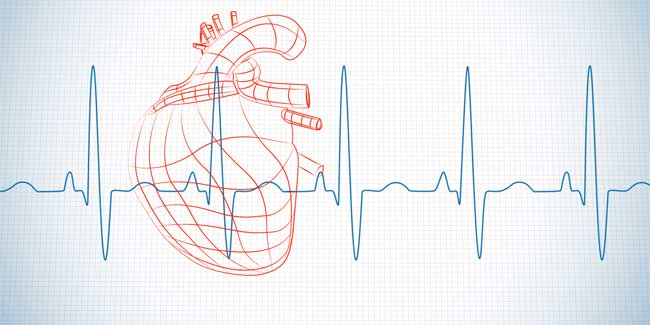
Until a few years ago, it was difficult for doctors to determine heart’s condition and complications which proved to be a major hindrance in the treatment of people suffering from heart diseases. The test called coronary arteriography has helped doctors all over the world to get a better understanding of a patient’s heart.
 Coronary Arteriography is an invasive test which enables the doctors to precisely determine the condition of heart. It helps doctors to accurately determine the amount of plaque built up in the heart.
Coronary Arteriography is an invasive test which enables the doctors to precisely determine the condition of heart. It helps doctors to accurately determine the amount of plaque built up in the heart.
How does it work?
Coronary arteriography is the scientific name for what we can call heart mapping i.e. drawing a map of heart. First, a very thin catheter (a kind of tube) is inserted through an artery from neck, groin or arm to the coronary arteries around the heart.
Through this tube the contrast dye is inserted into the blood circulating in coronary arteries. This dye can be easily traced in the x-rays called angiograms. Through these angiograms the doctor can see the coronary arteries of the heart.
How does it help?
Angiograms enable doctors to evaluate the condition of the heart and the amount of plaque that has formed in the arteries.
Excessive plaque build-up can cause the blood vessels to narrow down which in turn hindrances the flow of oxygen rich blood to the heart causing angina and in extreme cases, a heart attack.
What is the cost?
The cost for the test is around Rs. 8,500. Price includes cost of contrast, procedure, presence of anaesthetic doctor, CD, films and colour rendered images.
When do doctors suggest a coronary arteriography test?
- If you have signs of heart disease like angina.
- If results of other non-invasive tests suggest that you might have a heart disease.
- If you have a heart attack.
- To locate the blockages before angioplasty, a procedure to open blocked arteries.
- If you still have symptoms after a heart attack and your doctor feels the need to re-evaluate the condition of your heart.
Generally doctors suggest a coronary arteriography test only in cases where non-invasive tests have either failed to give sufficient information about the heart or the doctor feels the need to analyze its condition.
Benefits and risks of coronary arteriography test:
According to Dr Samved Patel, “The test picks up early deposition of plaque in the artery, which can be easily missed otherwise. Also associated disease process in heart, lungs and mediastinum (the space in the chest between the pleural sacs of the lungs) can be picked up”. He claims that this test is the best and most cost-effective way to find out about plaque deposits in heart.
The test takes only three hours and does not cause much pain. It gives an in-sight understanding of heart’s condition and helps determine the extent and place of plaque deposits inside the heart. In emergency cases a coronary arteriography test can help open up blocked arteries.
Coronary arteriography test has minimal risk, although if you are going for it, it is good to know about some after-effects:
- There is risk of infection or pain at the catheter site.
- The contrast dye used can cause allergy to some people.
- Damage to blood vessels might happen.
- Some more rare complications like damage to kidney, formation of blood clots, low blood pressure or irregular heart beat might occur.
- Aged people, pregnant women, kidney and emergency patients, are more likely to have complications than other patients.
- People are awake during the test and only some medication is given to help them relax. The spot where the catheter is inserted will be numbed by a local anaesthesia.
- It is possible that you might not be able to drive after the test, so it is advisable to take someone along with you when going for the test.
Read more articles on Heart Health.
How we keep this article up to date:
We work with experts and keep a close eye on the latest in health and wellness. Whenever there is a new research or helpful information, we update our articles with accurate and useful advice.
Current Version
